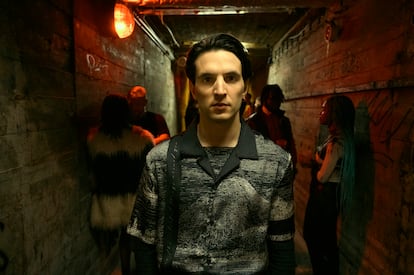‘Suburraeterna’: The sequel to ‘Suburra’ exposes the greed of the powerful
Cruelty and the lust for power exist in all social classes

Rome 2011. Municipal politics and the Roman curia (the Cabinet of the Catholic Church) are on the verge of a nervous breakdown. The people are rioting in the streets over their dissatisfaction with the city’s mismanagement by the privileged few chosen to hold earthly and divine power. But if the City Council and the Vatican are in crisis, the underworld of the criminal clans could not be less so. All this forms the backdrop over the eight episodes of Suburraeterna, Netflix’s sequel to its much feted series Suburra.
Created by Ezio Abbate and Fabrizio Bettelli, it brings Lord Acton’s famous 1887 epithet to life: “Power corrupts and absolute power corrupts absolutely.” The difference between corruption in the different social classes is that in politics, the moves to eliminate one’s opponent are made through exploiting the legal system; in the Roman Curia the preferred methods are blackmail and Machiavellianism; and the competition is eliminated using guns in the underworld. Visible in all three, though, are cruelty, greed, and the lust for power.
Most of the series’ action takes place in the Roman district of Ostia. Operating there are the criminal gangs who live and die for control of the city’s illicit drugs trade. These gangs are called to act in the city center whenever the political powers want them to. The centerpiece of Suburraeterna’s plot is getting control over the construction of a new stadium. The city administration’s ruse to try to divert citizen fury will be the trigger for the fight between the three powerful groups. I guess the saying is true: “There’s nothing new under the sun.”
Sign up for our weekly newsletter to get more English-language news coverage from EL PAÍS USA Edition
Tu suscripción se está usando en otro dispositivo
¿Quieres añadir otro usuario a tu suscripción?
Si continúas leyendo en este dispositivo, no se podrá leer en el otro.
FlechaTu suscripción se está usando en otro dispositivo y solo puedes acceder a EL PAÍS desde un dispositivo a la vez.
Si quieres compartir tu cuenta, cambia tu suscripción a la modalidad Premium, así podrás añadir otro usuario. Cada uno accederá con su propia cuenta de email, lo que os permitirá personalizar vuestra experiencia en EL PAÍS.
¿Tienes una suscripción de empresa? Accede aquí para contratar más cuentas.
En el caso de no saber quién está usando tu cuenta, te recomendamos cambiar tu contraseña aquí.
Si decides continuar compartiendo tu cuenta, este mensaje se mostrará en tu dispositivo y en el de la otra persona que está usando tu cuenta de forma indefinida, afectando a tu experiencia de lectura. Puedes consultar aquí los términos y condiciones de la suscripción digital.









































